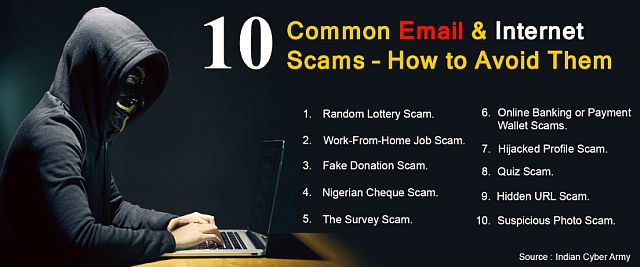Lúc này nước Mỹ quỷ ma hơi nhiều! Lại thêm mấy thằng Cà ri nị Ấn và mấy thằng đen bên Nigeria
nó "hack" vào bank accounts hay gởi "phishing e-mails" tùm lum. Quý vị nên cẩn thận!

1. Avoid scams involving gift cards
2. Some top scams to be aware of
Scammers are taking advantage of the current environment to try and obtain your personal and financial information. Here are the top COVID-19 scams to be aware of:
Scams that typically target students
Check cashing
Fake goods
Fake rental
Over-payment
Student aid
Tech support
Scams that typically target parents, working adults or retired adults
Charity
Debt relief
Email compromise
Grandparent
Impostor
Investment
Lottery/sweepstakes
Romance
Tech support
Mortgage Closing
Know the best ways to avoid being scammed
- Don’t respond: If you’re not 100% certain of the source of the call, email or text, then hang up the phone, don’t click on the link in the email and don’t reply to the text message.
- Don’t trust caller ID or answer phone calls from unknown numbers: If you recognize the caller ID but the call seems suspicious, hang up the phone. Phone numbers can be easily spoofed to appear to be from a legitimate caller.
- Don’t give out your information: Never provide any personally identifiable information unless you’re absolutely certain the person and reason are legitimate. Remember: Bank of America will never ask you to send us personal information such as an account number, Social Security number or Tax ID over text, email or online.
- Research and validate: If the individual or organization seems suspicious, make sure the request being made is legitimate by calling the organization through an official number from their website or consulting with a trusted family member or friend.
(trên Net)
nó "hack" vào bank accounts hay gởi "phishing e-mails" tùm lum. Quý vị nên cẩn thận!

1. Avoid scams involving gift cards
- Never share gift card information (such as the card’s unique identifier number) with someone you don’t know.
- Criminals may pressure you to send them funds via gift cards by asking for the code numbers or PINs on the backs of the cards so they can be redeemed immediately.
- Criminals may masquerade as IRS agents, tech-support personnel or a romantic interest in an online dating app.
- Criminals will tell you a story about how they urgently need funds—for example, there’s a medical emergency or they’re working far away and want to travel to see you.
2. Some top scams to be aware of
Scammers are taking advantage of the current environment to try and obtain your personal and financial information. Here are the top COVID-19 scams to be aware of:
- Vaccine scams: Be alert when requested to send information or money for a promise to receive a vaccine. Scammers claim to be able to provide a vaccine sooner than expected for a fee.
- Stimulus scams: You will never be asked to provide personal information in order to receive stimulus funds. Scammers ask for personal and financial information claiming it is needed to send you your stimulus payment.
- Imposter scams: Don’t click on links from unknown sources. Scammers send phishing emails pretending to be an official organization such as the CDC and WHO. Clicking on links may download malware or allow access to information on your device.
- Charity scams: Before donating, do your research. Scammers will reach out asking you to donate to a charity, but the charity is fake. Make sure you validate the request prior to sending money.
- Employment scams: Scammers will make employment opportunities attractive by sending a fake check to purchase job-related supplies, often asking for funds to be returned.
- Stimulus scams: You will never be asked to provide personal information in order to receive stimulus funds. Scammers ask for personal and financial information claiming it is needed to send you your stimulus payment.
- Imposter scams: Don’t click on links from unknown sources. Scammers send phishing emails pretending to be an official organization such as the CDC and WHO. Clicking on links may download malware or allow access to information on your device.
- Charity scams: Before donating, do your research. Scammers will reach out asking you to donate to a charity, but the charity is fake. Make sure you validate the request prior to sending money.
- Employment scams: Scammers will make employment opportunities attractive by sending a fake check to purchase job-related supplies, often asking for funds to be returned.
Scams that typically target students
Check cashing
Fake goods
Fake rental
Over-payment
Student aid
Tech support
Scams that typically target parents, working adults or retired adults
Charity
Debt relief
Email compromise
Grandparent
Impostor
Investment
Lottery/sweepstakes
Romance
Tech support
Mortgage Closing
Know the best ways to avoid being scammed
- Don’t respond: If you’re not 100% certain of the source of the call, email or text, then hang up the phone, don’t click on the link in the email and don’t reply to the text message.
- Don’t trust caller ID or answer phone calls from unknown numbers: If you recognize the caller ID but the call seems suspicious, hang up the phone. Phone numbers can be easily spoofed to appear to be from a legitimate caller.
- Don’t give out your information: Never provide any personally identifiable information unless you’re absolutely certain the person and reason are legitimate. Remember: Bank of America will never ask you to send us personal information such as an account number, Social Security number or Tax ID over text, email or online.
- Research and validate: If the individual or organization seems suspicious, make sure the request being made is legitimate by calling the organization through an official number from their website or consulting with a trusted family member or friend.
(trên Net)

